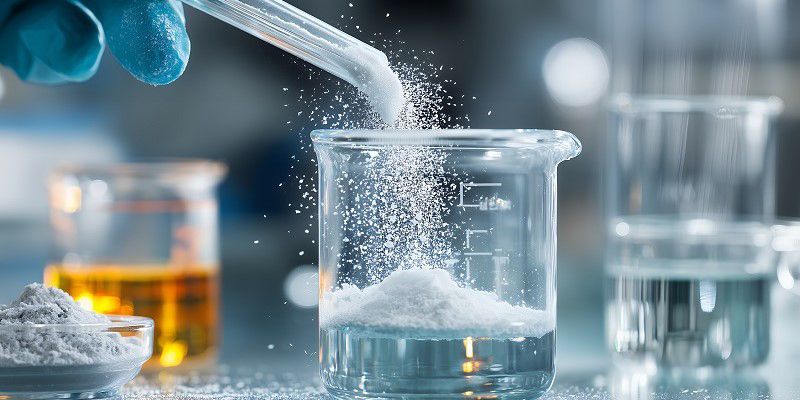
實驗室研磨機怎麼選?從實驗室研磨機類型到挑選技巧快速掌握!
在現代科技及工業領域,精準數據是推動產業進步的基石。為了獲得精確的實驗結果,樣品必須被均質化,達到可用來分析的細度和均勻度,否則將直接影響產品產量及品質,甚至增加額外的分析成本。本文將詳細介紹處理樣本的重要工具「實驗室研磨機」,深入了解其主要功能與常見的類型,並提供詳盡的採購指南,協助你挑選最符合自身需求的設備。
一次了解實驗室研磨機的重要性!
實驗室研磨機(Laboratory Grinder)是一種在醫學、化學、食品等領域中,用來將固體樣品進行粉碎、細化、均質化的專用設備,其原理是利用力學摩擦、擠壓、撞擊、切割或重力等方法來達到處理目的。看似簡單的物理過程,卻對後續的實驗分析有著深遠的影響。舉例來說,若實驗樣品的粒度過大或不均勻,可能導致取樣代表性不足,進而產生實驗誤差。而透過實驗室研磨機,可以大幅提高分析準確性,減少因樣品不均勻性而導致的誤差,從而提升整體效率。
(延伸閱讀:研磨機是什麼?3分鐘了解研磨機種類、應用與選購要點!)
實驗室研磨機類型有哪些?常見規格完整分析
市面上的實驗室研磨機種類繁多,常見的類型主要分為球磨、刀式、臼式、冷凍等,以下將會詳細介紹每種類型適用的樣品與研磨原理。
球磨實驗室研磨機
球磨實驗室研磨機的機身呈圓筒狀,內部裝有球形研磨體與物料。它的原理是利用轉軸表面橡皮的摩擦力來帶動上方的球磨罐一同旋轉,藉此反覆對樣品產生衝擊、摩擦作用,進而達到粉碎或破裂,以將原料從大顆粒變為小顆粒,再將小顆粒磨成細粉為目的。球磨機最大的優點是適用於各種硬度、脆性材料的乾濕法研磨,且因結構簡單、價格具競爭力,已被廣泛應用於水泥、化學、玻璃陶瓷等產業。
刀式實驗室研磨機
刀式實驗室研磨機的原理是透過旋轉刀片的切割力量,將較大塊的原料研磨成更細小的顆粒。相較球磨機適用於各種硬度的產品,刀式研磨機比較適合用來處理軟性、彈性、纖維性或脂肪含量較高的原料,因此被廣泛應用在農業、工業領域,經常用來處理葉片、根莖等植物組織、塑膠、橡膠、紡織品、紙張、飼料與食品等。
臼式實驗室研磨機
「臼」是一種中間下凹的舂米器具,而臼式實驗室研磨機則是模擬傳統研缽和研杵的型態,以及研磨方式,利用研杵在研缽內進行壓力、摩擦和剪切,反覆施加壓力以達到細化樣品的目的。此類型的實驗室研磨機適合溫和研磨中等硬度、脆性或易碎的樣品,例如:藥品、土壤、化學品、香料、植物種子等,常被用於樣品的混合與均質化。
(延伸閱讀:香料研磨是什麼?不同香料研磨細度、方法會影響風味!)
冷凍實驗室研磨機
冷凍實驗室研磨機的原理是將樣品放置於液態氮等低溫環境下,快速冷卻至脆性狀態,然後利用衝擊、剪切或磁力振盪多種方式進行研磨,以防止樣品因溫度變質。此類型實驗室研磨機適用於熱敏感性、彈性和韌性較強、揮發性成分高,或易分解變質的生物樣品、高分子材料與藥材等,尤其在講究高精密度的高科技產業,溫度掌控被視為提高產品良率的重要因素,使冷凍實驗室研磨機的重要性日益增加。
(延伸閱讀:粉碎機是什麼?原理、應用與挑選重點一次看!)
4個關鍵幫助你挑選符合需求的實驗室研磨機!
實驗室研磨機有多種類型,選擇時需要考慮到樣品特性、目標粒度、實驗需求與價格等關鍵因素,以下將從4個面向詳細說明,幫助你找到最適合的實驗室研磨機。
(延伸閱讀:磨粉機怎麼選?詳解磨粉機原理與3大應用領域,提升生產效能!)
樣品特性
樣品特性是選擇研磨機的首要考量,必須先了解樣品的物理和化學性質,像是硬度、濕度、黏性等,再挑選最適合的實驗室研磨機。舉例來說,植物纖維適合使用刀式研磨機,礦石適用於球磨機,需要掌控溫度的原料則可運用冷凍實驗室研磨機。而部分研磨機可能不適合用來處理潮濕或黏性高的樣品,因此在選擇時務必仔細確認樣品的性質。
(延伸閱讀:塑膠研磨機怎麼選?掌握原理、機型、選購重點,塑膠加工不煩惱)
目標粒度
粒度是指樣品的顆粒大小,不同的實驗室研磨機對最終粒度有不同的效果。因此,在選擇實驗室研磨機時,也要考量最終樣品需研磨到多細的程度,例如:粗粉、細粉,亦或是微米級、奈米級。此外,就算是同一種類型的研磨機,不同型號可以適用的粒度範圍也會有所差異,可以將樣品的均勻性一起納入考量,保障樣品的粒度、均質化都能符合預期。
(延伸閱讀:針盤式研磨機是什麼?一次搞懂運作原理、優勢與用途!)
實驗需求
在挑選實驗室研磨機前,可以重新檢視、確認最終實驗需求,並根據所需的樣品量來挑選研磨機款式,像是每次研磨的樣品量是幾毫克、幾克,還是幾百克?在不同情境中,微量樣品較適合使用臼式或小型球磨實驗室研磨機,而如果有處理大批量樣品的需求,可能就得使用到刀式實驗室研磨機或大型球磨機。
(延伸閱讀:錘式粉碎機是什麼?一篇看懂運作原理、優缺分析及選型指南)
價格差異
不同類型和品牌的實驗室研磨機價格會有所差異,關乎著實驗成本高低,像是球磨實驗室研磨機因為是由一個可旋轉的容器與一定數量的研磨球組裝而成,構造相對簡單,與其他動輒數十萬元的實驗室研磨設備相比,其購置成本相對較低。因此,在選購實驗室研磨機時,需要綜合考量設備的購買成本、耗材成本、維護成本,甚至是能源消耗等因素,從多方面的考量將設備最大效益化。
凌廣工業-80幾年的研發技術,打造最專業的實驗室研磨機
凌廣工業在過去80幾年間持續深耕實驗室研磨機的技術應用領域,如今除了穩定立足台灣,也將商業觸角拓展至歐美國家與中東地區,躍居國際主流供應商之一。憑藉多年實作經驗優勢,凌廣工業提供深度客製化諮詢、設備產能精進優化等服務,即時全面管控客戶訂單,更提供組裝後試機、內外銷產品包裝、機台貨櫃裝運、產品維修等一條龍服務。
凌廣工業對自身產品穩定性極具信心,累積銷售實績無數,像是深受客戶信賴的「桌上型、實驗室專用粉碎機」,是凌廣工業的熱門產品,這款實驗室研磨機藉由高速刀片運作,搭配 25,000 至 30,000 RPM 轉速,能在短時間內將物料細化,滿足學術研究機構、實驗室、個人工作室等客戶核心需求。
(產品推薦:桌上型、實驗室專用粉碎機)
致力於永續經營與國際化的凌廣工業,是值得信賴的選擇!
一款耐用、穩定性佳的實驗室研磨機,不僅是實驗時的輔助工具,更是確保後續數據分析的準確性,提高實驗效率。實驗室研磨機在工業層面應用極廣,扮演提升產線效率的關鍵角色。凌廣工業憑藉著超過80年的豐富製造經驗與銷售實績,持續追求研發創新並提升產品品質,是您在選購各類實驗室研磨機時,值得信賴的夥伴。若您想進一步了解我們的產品與服務,歡迎隨時與我們聯繫,獲得即時的專業協助。
